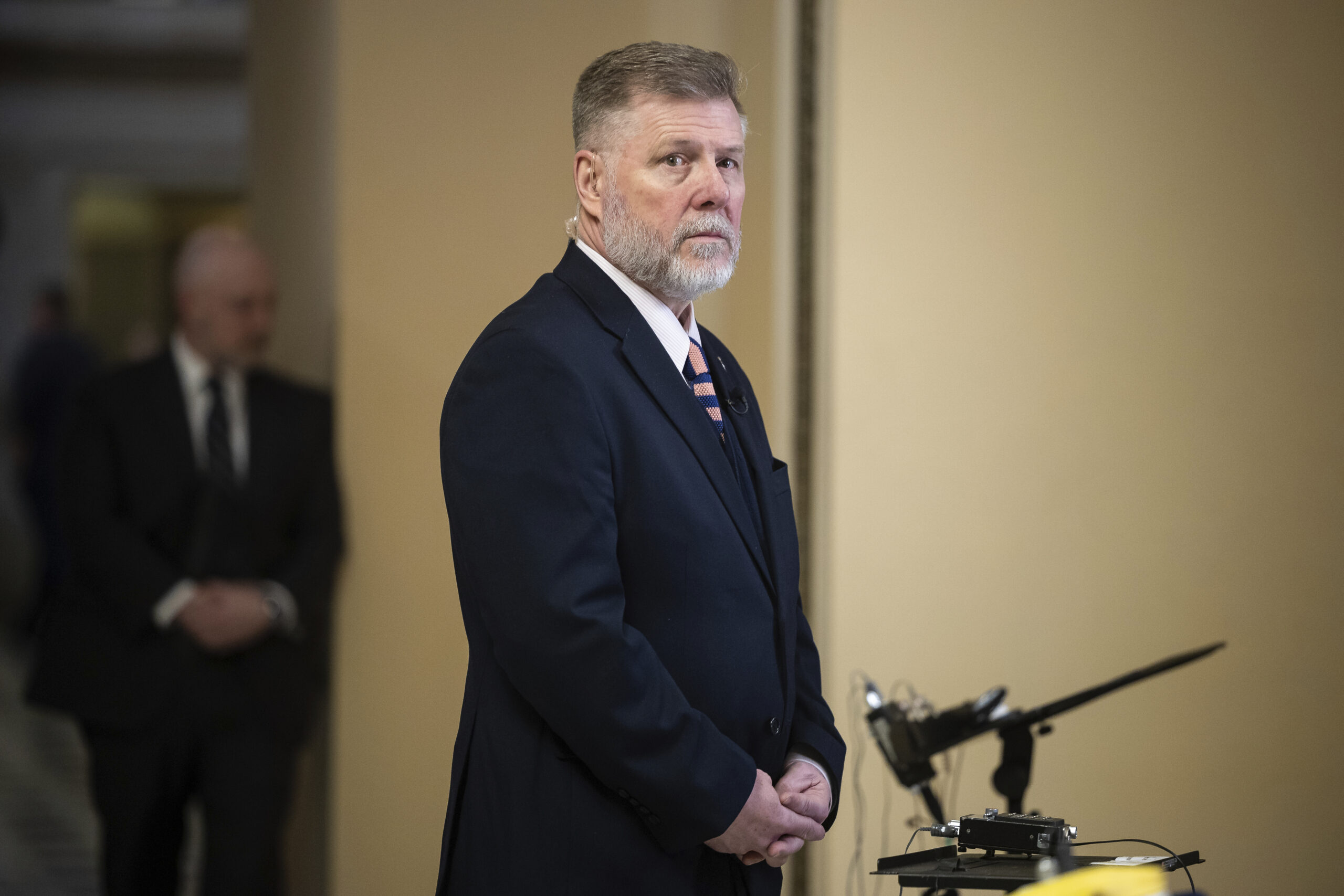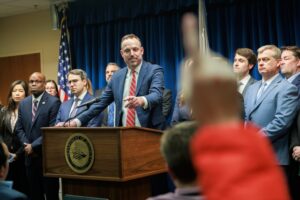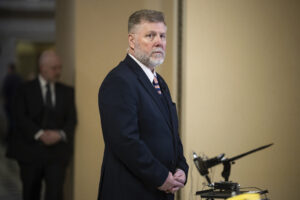Politics
Dealing with post-election stress? Now’s the time to breathe.

Many of us woke up Wednesday morning — if we slept at all — anxious about how to speak to our children, loved ones and how to feel ourselves.
The 2024 presidential election has left our country more polarized than ever. With now President-elect Donald Trump returning to the White House, many Americans are feeling angry, fearful and deeply concerned about the future. As a physician who has worked in health policy at the highest levels of government, I’ve seen firsthand how political divisions can impact people’s well-being.
We need to recognize that the deep partisan polarization in our country didn’t start with Trump, and it won’t end with his re-election.
I’ve also witnessed the resilience of the American people and our ability to come together in times of crisis. As we look ahead to the next four years, there are some key steps we can take to begin healing our national wounds and bridging the divides that threaten to tear us apart.
First, we need to recognize that the deep partisan polarization in our country didn’t start with Trump, and it won’t end with his re-election. The roots of our current divisions go back decades, fueled by economic inequality, cultural changes and an increasingly siloed media landscape. Trump’s inflammatory rhetoric and norm-breaking behavior have certainly exacerbated these divisions. But simply removing him from office was never going to be a panacea. We must address the underlying factors that have led so many Americans to feel angry, disenfranchised and disconnected from their fellow citizens.
That starts with rebuilding trust, in our institutions, in our democracy, and in each other. Trust in government and the media is at historic lows, with many Americans retreating into partisan echo chambers that reinforce their existing beliefs. We need to create more opportunities for genuine dialogue and understanding across political and cultural lines. This means getting out of our comfort zones and engaging respectfully with those who hold different views. It also requires a shared commitment to facts and truth, even when they challenge our preconceptions.
At the same time, we can’t ignore the very real policy differences and values that divide us as a nation. On issues from health care to immigration to climate change, there are fundamental disagreements about the role of government and the direction our country should take. These debates are a healthy and necessary part of democracy. But we must find ways to disagree without demonizing those on the other side or questioning their basic humanity and patriotism.
As a doctor, I know that healing starts with treating the symptoms of here and now. When patients are presenting with symptoms that are consistent with grief reactions, post-traumatic stress and affective disorders, there are some simple practices I often suggest:
1. Take a news break: Allow yourself 1-2 hours away from all news and social media by putting the phone down and walking outside, rain or shine. This can help lower your stress levels and provide mental space.
2. Practice deep breathing: Try the 4-7-8 technique: Inhale for four counts, hold for seven, exhale for eight. Repeat 4 times.
3. Use grounding exercises: Focus on your five senses to anchor yourself in the present moment. Name five things you can see, four you can touch, three you can hear, two you can smell, and one you can taste.
4. Engage in physical activity: Even a short walk or some stretching can help reduce anxiety and improve mood.
5. Connect with supportive people: Reach out to friends or family who can offer comfort and understanding.
6. Practice self-compassion: Acknowledge your feelings without judgment. It’s OK to feel upset or anxious.
7. Focus on what you can control: Make a list of small, positive actions you can take in your community or personal life.
Remember, it’s normal to feel strong emotions during this time.
Remember, it’s normal to feel strong emotions during this time. If your distress persists or interferes with daily functioning, don’t hesitate to seek professional help.
Ultimately, healing our national divisions will require sustained effort from leaders and citizens alike. We need a renewed commitment to civic education, community building and the shared values that have long united Americans across partisan lines. We must resist the forces seeking to pull us apart and remember that what we have in common as Americans is far greater than our differences.
The road ahead won’t be easy. But I remain optimistic about our ability to overcome this difficult moment and emerge as a stronger, more united nation. Time and again throughout our history, Americans have risen to meet grave challenges. By recommitting ourselves to our highest ideals and to each other, we can do so once again.
Dr. Kavita Patel is a teaching professor of medicine, Division of Hospital Medicine at Stanford University and a board certified internal medicine physician. She served in the Obama administration as director of policy for the Office of Intergovernmental Affairs and Public Engagement in the White House. Her area of expertise is around the intersection of health policy, clinical medicine and innovation. She also spends time advising venture capital and is a medical contributor for NBC news.
Politics
White House wants a reprieve in spy-powers fight that is splitting the GOP

The Trump administration is pushing for a clean extension of Section 702 surveillance authority ahead of an April deadline…
Read More
Politics
White House wants a reprieve in spy-powers fight that is splitting the GOP
The Trump administration is pushing for a clean extension of Section 702 surveillance authority ahead of an April deadline…
Read More
-

 The Dictatorship1 year ago
The Dictatorship1 year agoLuigi Mangione acknowledges public support in first official statement since arrest
-

 Politics1 year ago
Politics1 year agoFormer ‘Squad’ members launching ‘Bowman and Bush’ YouTube show
-

 The Dictatorship5 months ago
The Dictatorship5 months agoMike Johnson sums up the GOP’s arrogant position on military occupation with two words
-

 Politics1 year ago
Politics1 year agoBlue Light News’s Editorial Director Ryan Hutchins speaks at Blue Light News’s 2025 Governors Summit
-

 Politics1 year ago
Politics1 year agoFormer Kentucky AG Daniel Cameron launches Senate bid
-

 The Dictatorship1 year ago
The Dictatorship1 year agoPete Hegseth’s tenure at the Pentagon goes from bad to worse
-
Uncategorized1 year ago
Bob Good to step down as Freedom Caucus chair this week
-

 Politics10 months ago
Politics10 months agoDemocrat challenging Joni Ernst: I want to ‘tear down’ party, ‘build it back up’










